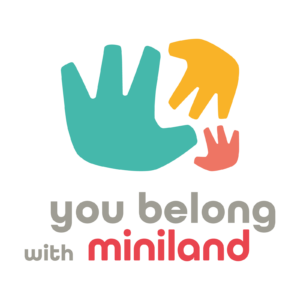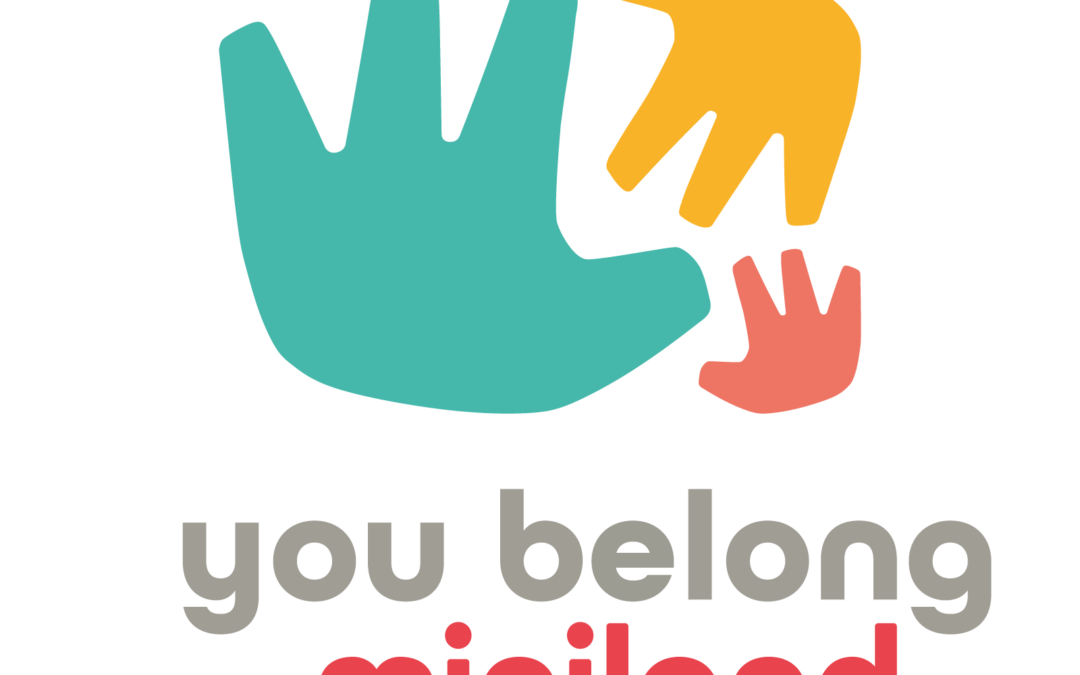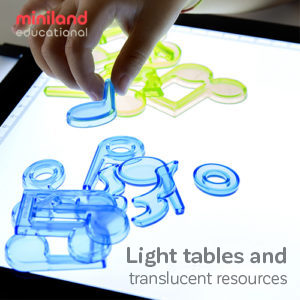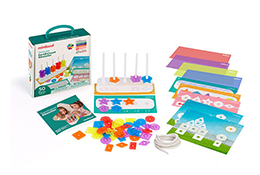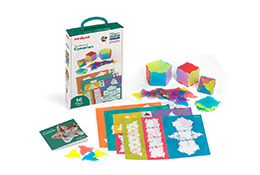We are so proud to continue our You Belong with Miniland initiative this year!
You Belong is an important message that encompasses the values of the Miniland brand and all who support it: the Children who Play, the Teachers who Teach, the Parents who Guide, and the stores who work with us.
The initiative is centered on our core values of inclusion, tolerance, empathy, collaboration and acceptance.
At the heart of You Belong are powerful statements that can be easily incorporated into your daily routines:
Whoever you are, whatever you look like, wherever you’re from: with Miniland, you’re not an outsider: You Belong.
All are Welcome. All are Accepted. All are Included.
All are Respected and treated with Kindness.
The world, and our country especially, continues to struggle with divisive messages and attitudes. These mindsets don’t just affect grown-ups: they impact our children. Young minds that are like sponges absorbing everything around them are quicker to recognize racisms, intolerance, injustice, and disrespect more than ever before.
This is why it’s so crucial to lay the foundation for an inclusive environment for babies and young children. And as we know, what better way to learn than through play?
Providing your children with diverse play experiences both at home, or, if you’re a teacher, in your classroom, gives young minds access to tools that encourage acceptance and inclusivity throughout their formative years. These lessons will last long into adulthood and impact our world for generations.
Throughout the You Belong Campaign this August and September, we are offering our followers a chance to win a shopping credits to participating Miniland retailers and Miniland Product Prize Packs filled with our best-selling Social Emotional Learning toys and games to help you create inclusive play environments at home or in your classroom.
We are also sharing tips and inspirational messages from educational and parenting influencers on ways you can make your play time more inclusive and which Miniland products they like the most to help you do just that.
Beyond the exciting Giveaways, we hope You Belong resonates with you as you continue your efforts to teach your children kindness and respect towards themselves and those around them.
To help inspire you to share messages of inclusivity and lend your voice to the many who provide welcoming play environments to the most impressionable among us, here are some simple ways you can create a more welcoming play experience and/or classroom:
1. Perform a Diversity Audit: Before you start re-organizing or buying, make a list of what you see and don’t see in your home or classroom. Walk around your space and jot down which cultures, identities, ethnicities and positive messages you have represented in the toys, bookshelves and materials you already own. This will help you identify how well you’re doing with representation. Are you showing enough representations of various ethnicities in your materials, toys and games? Do you have any examples of messages to help your children learn about the differently abled, or to help students with different conditions see themselves? If you’re comfortable, you could even ask a friend to come and join you and make notes too. Sometimes it helps to have another set of fresh eyes to take stock.

2. Are you a Teacher? Review your Curriculum: Take a look at what you’ve taught your students this past year, and see how can you improve upon topics of inclusivity into your curriculum this coming school year. One of the best ways to teach inclusivity, acceptance and kindness is through a strong dose of Social Emotional Learning.Combine physical play with corresponding online components, like our Teach & Play resources. By providing direction on assignments and lessons that encourage students to celebrate their identities and learn more about the identities of their classmates, you’re creating an open forum where students feel seen, safe and appreciated.

3. Start each day with a POSITIVE Message: Start the morning off right by talking about things that focus on positive interactions and respectful representation. You can discuss topics like
a. Kindness Counts: Examples
Parents: “Good morning munchkin! Thank you for helping Mommy out this morning. You cleaned up your toys so nicely. I am going to have such a great day today because you helped me. Thank you!”
Teachers: “I want us all to clap our hands for Emery and Reece this morning! Yesterday, Reece helped Emery tidy up her backpack, and Emery said thank you! It is so important and special to help people when you can. It can be a little thing or a big thing, and the best part is, it will make someone’s whole day!
b. Compliment Time: Examples
Parents: “Daddy makes the best breakfasts. Jose, can you tell your Dad which breakfast you like the best that he makes?”
Teachers: “Let’s go around the circle and say something nice about the person sitting next to our left sides. David, you can start us off by saying something nice about Tamiko!”
c. Families: Examples:
Parents: “Hey Riley, let’s make up some of your friend’s families. Jack has 2 Mommies, can you show me what his family looks like with our blocks?”
Teachers: “Do you know what is so special about all of us? We all look different, act different, and have different families. Isn’t that great? Let’s take some time this morning to celebrate what each of our families look like. Let’s break up into three groups and play with our Family Diversity Blocks to make up our very own families. At the end, I’d like each of you to tell us all about your unique family!”

4. Honor Special Days & Holidays: We all know how fun it is to celebrate “themed” days both nationally and internationally . It seems as though there is a day for everything! From World Autism Awareness Day to Native American Heritage Day, there is literally a day to celebrate anything you can imagine. Celebrations are a great way to educate and stimulate positive thoughts about cultures, backgrounds and ethnicities. You can celebrate and discuss the history and background of ethnically diverse days to your children and students by playing games from the specific culture you’re celebrating, to learning about or even cooking the types of foods that culture eats.
5. LISTEN and think before YOU speak: Though your children and students might think the opposite, adults don’t always have all the answers (shh!). Take the time to educate yourself by listening, to yourself and to others. Ask yourself if you have any cultural biases. If you have any preset or engrained attitudes towards any type of group or person. The work starts with you. Use this as an opportunity to listen to the little ones in your life. Give them a voice and show them you hear them. You have the power to affect change for generations to come by setting an example they will mirror.

By implementing these tips and suggestions into your daily lives, routine or lesson planning, you are laying the groundwork for children to grow up to be kind and welcoming adults who are inclusive of others naturally and effortlessly.
And remember, we see you, we hear you, we acknowledge you with respect and open arms.
